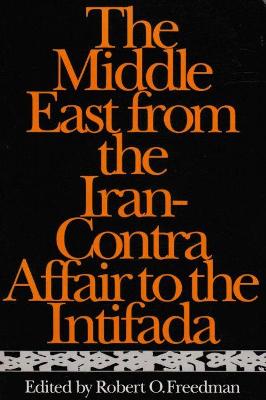Contemporary Issues in the Middle East
1 total work
The Middle East from the Iran-Contra Affair to the Intifada
by Robert O. Freedman
Published 1 January 1991
The Iran-Contra affair had a major impact on the Middle East. The disclosure that the United States, occasionally using Israel as a conduit, had sent arms to Iran, temporarily undermined the US diplomatic position in the Arab world and helped promote the massive US naval buildup in the Persian Gulf that was aimed at reassuring the Gulf Arabs of US support against Iran. The Soviet Union, seeking to exploit the US discomfiture over the scandal, tried to promote an international peace conference and, in the process, carried on a diplomatic flirtation with Israel. The Iran-Contra affair had a major impact on the East-West superpowers, on the protagonists in the Iran-Iraq war, and on other nations of the Middle East. This challenging new book examines these developments from three different levels - that of extra-regional forces (the United States, the Soviet Union, and Western Europe); regional politics (intra-Arab relations, the Arab-Israeli conflict, and the Iran-Iraq war); and local politics (Jordan, Israel, the Palestinians, Syria, Egypt, Lebanon, Turkey, and the Sudan).
It thus provides readers with a multi-dimensional view of Middle Eastern political dynamics in an increasingly turbulent period.
It thus provides readers with a multi-dimensional view of Middle Eastern political dynamics in an increasingly turbulent period.
